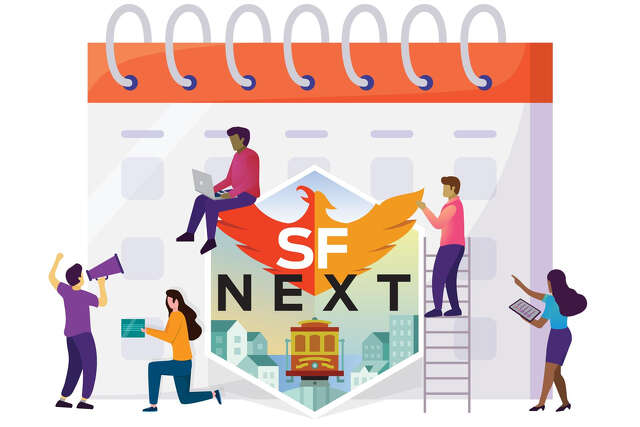These SF neighborhoods displaying most financial development since COVID

In most parts of San Francisco, consumer spending isn’t close to where it was before the COVID-19 pandemic, but for three neighborhoods in the city, this is no longer the case.
Citywide, San Francisco brought in 25% less sales tax revenue in the first quarter of 2023 than it did in 2019, even after accounting for inflation. Nearly all neighborhoods generated less revenue over this period, except for the Western Addition, Japantown and the Presidio, which saw 36%, 9% and 5% increases, respectively.
Meanwhile, downtown neighborhoods have been hit hardest, like the Financial District (-32%), South of Market (-36%) and Tenderloin (-59%).
Although sales tax isn’t a major source of revenue for the city, given that most earnings go to the state, it paints a picture of geographic consumer spending patterns.
Ted Egan, San Francisco’s chief economist, said certain neighborhoods are seeing growth not because they’re the “hot new place” to be in San Francisco, but rather, “they seem to just specialize in areas of the economy that have recovered a lot coming out of the pandemic in terms of consumer spending.”
The over 30% growth in Western Addition is almost entirely due to new car sales from dealerships in the area, according to Egan. New motor vehicle dealers were the biggest source of sales tax revenue in the Western Addition in early 2023 at almost 70% of all sales, according to data from the California Department of Tax and Fee Administration.
Car sales are a major contribution to sales tax, according to Egan, and with car prices — for both new and used cars — still at elevated levels, this has been a major boon to businesses in Western Addition.
Citywide, new car sales saw the second highest increase in revenue at 30% from the first quarter of 2019 to 2023, just behind jewelry stores at 41%.
Japantown saw the second highest increase in sales tax revenue since 2019 at 9%. According to Egan, this jump is due to growth in the restaurant sector — a mix of new business openings and the recovery of customer demand.
Sales tax data suggests that Japantown has a higher concentration of restaurants than other neighborhoods, Egan said, allowing the neighborhood to “ride the restaurant boom.” Indeed, over half of total sales tax revenue in early 2023 came from casual and fine-dining businesses, according to the CDTFA.
What’s SFNext
SFNext is a Chronicle special project to involve city residents in finding solutions to some of San Francisco’s most pressing problems.
Send feedback, ideas and suggestions to sfnext@SFChronicle.com
Where to find more SFNext content
Additionally, the introduction of more parklets since the pandemic allowed restaurants in the area to increase their capacity, said Patti Mangan, executive director of the Fillmore Merchants Association.
Japantown’s positive sales tax revenue growth is a reflection of restaurant recovery citywide, which the Controller’s Office has highlighted as a bright spot in the city’s economic recovery.
“Restaurants were so badly beaten down in 2020 that a lot of the growth of the last two years is just the reopening,” Egan said. “But there’s also been significant growth just from early 2022 to 2023 and there wasn’t much reopening then — that’s just the recovery of people wanting to go out to restaurants.”

The Get Involved calendar
Search for public meetings on top San Francisco issues so you can add your voice.
Egan attributes the Presidio’s 5% growth to new business openings in the area.
While certain parts of the city are recovering faster than others as a result of current economic trends like car sales and restaurant recovery, other industries in San Francisco, like retail, are still struggling to make a comeback.
“(Recovery) isn’t just a downtown problem, it’s a citywide loss of population and loss of retail problem,” Egan said. “But there are definitely some bright areas.”
Reach Adriana Rezal: adriana.rezal@sfchronicle.com





